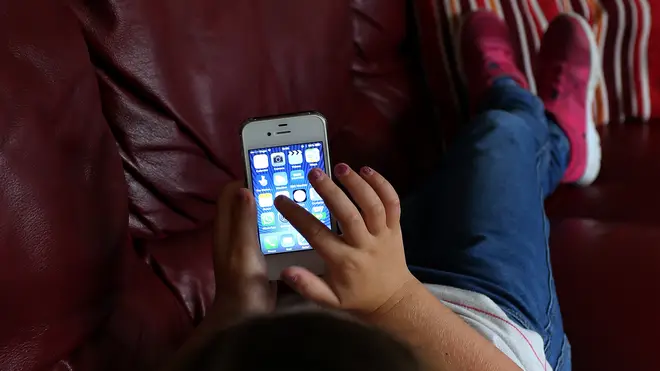
Rachel Johnson 7pm - 10pm
10 June 2021, 00:04

An Ofsted report highlighted how children are sharing sexual images via apps such as WhatsApp and Snapchat, and easy access to pornography.
Proposed online safety laws designed to protect people from harm online are not enough to address how risks spread rapidly across platforms, the NSPCC has said.
The warning comes after an Ofsted report into sexual abuse in schools highlighted increasing prevalence of online-related incidents, including sexual images being shared via apps such as WhatsApp and Snapchat, and concerns about easy access to pornography.
Among the recommendations issued to Government, the schools watchdog said the findings should be considered when developing the Online Safety Bill, so it can “strengthen safeguarding controls for children and young people to protect them from viewing online explicit material and engaging in harmful sexual behaviour using social media platforms”.
The current draft of the law focuses on pornography that is user-generated, meaning it may overlook commercial adult sites.
Andy Burrows, head of child safety online policy at the NSPCC, said the Government must extend legislation to stop children from accessing pornography wherever it is hosted on the internet, if the Bill is going to make a meaningful change.
“Peer abuse doesn’t just happen in the school corridors and classrooms and it’s significant that Ofsted has recognised the need for Government action against the amount of harm that takes place online,” he said.
“The review highlighted how children use different apps to record and share abuse, jumping easily from Snapchat to WhatsApp, but the draft Online Safety Bill fails to adequately address how risks spread rapidly across platforms.
“Ministers must up their ambition if regulation is to tackle preventable online harm and abuse.
“They can start by compelling firms to work together to deliver systemic protections and extend the legislation so it stops children from accessing pornography, whether on social media or commercial sites.”
Susie Hargreaves, chief executive of child online safety charity the Internet Watch Foundation (IWF), said it is time to see safeguarding in places we expect it most.
“We fear easy access to pornography from a young age may lead to the societal normalisation of sexual violence or behaviours,” she said.
“We would like to see greater safeguards put in place to make sure children can be kept as safe as possible while online.
“As the latest figures from Ofcom show, we are all more reliant on the internet to live our daily lives.”